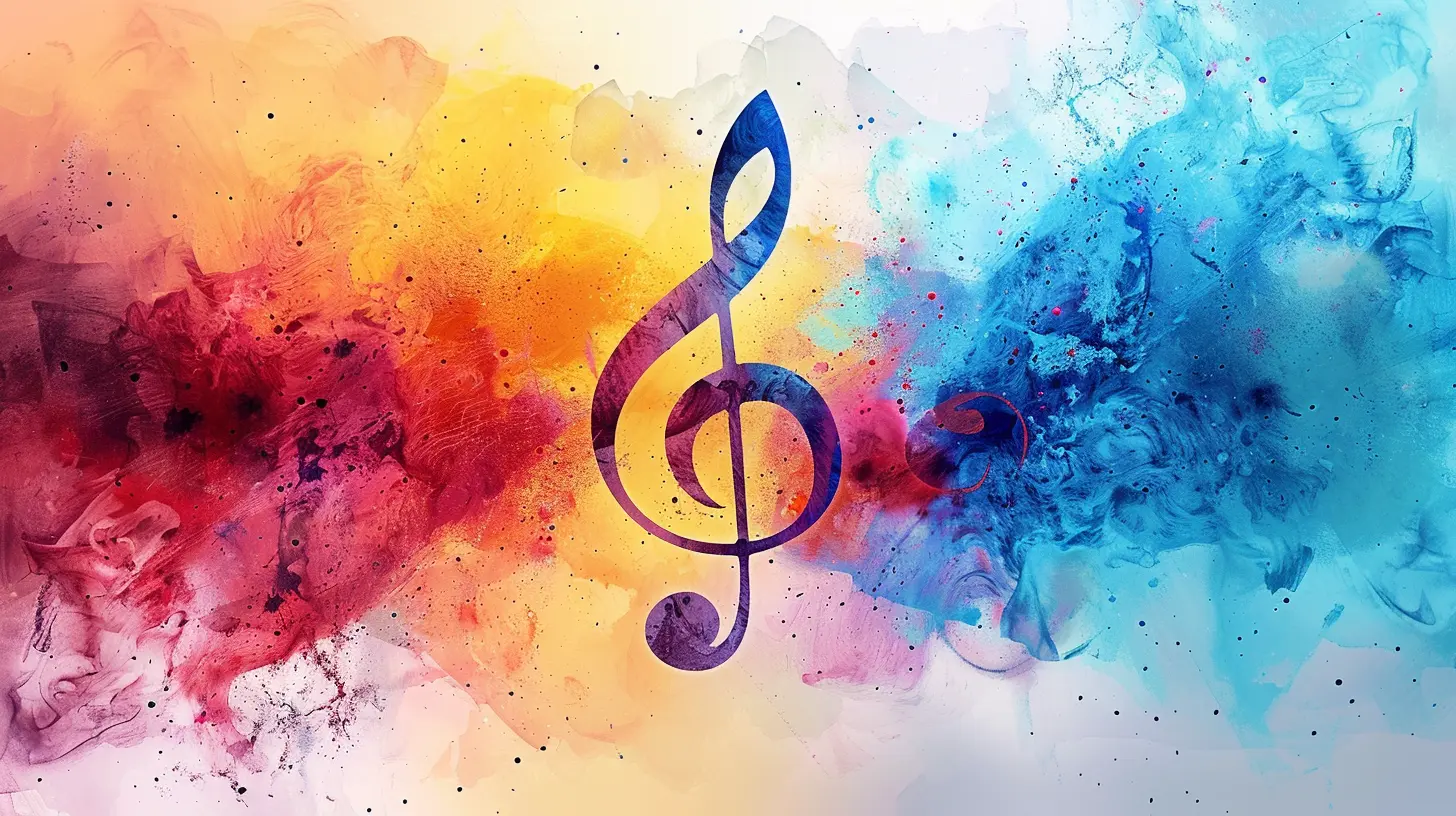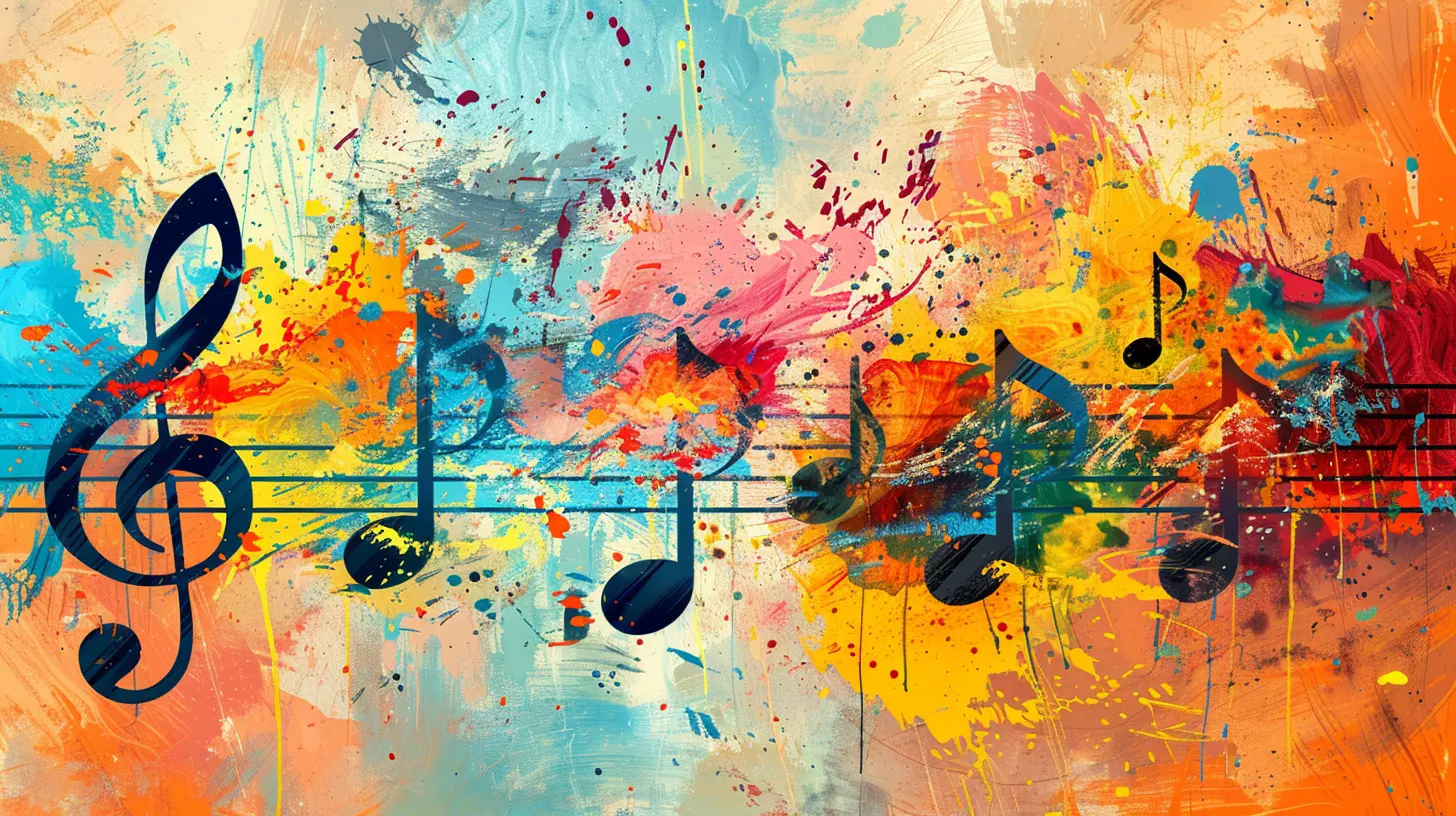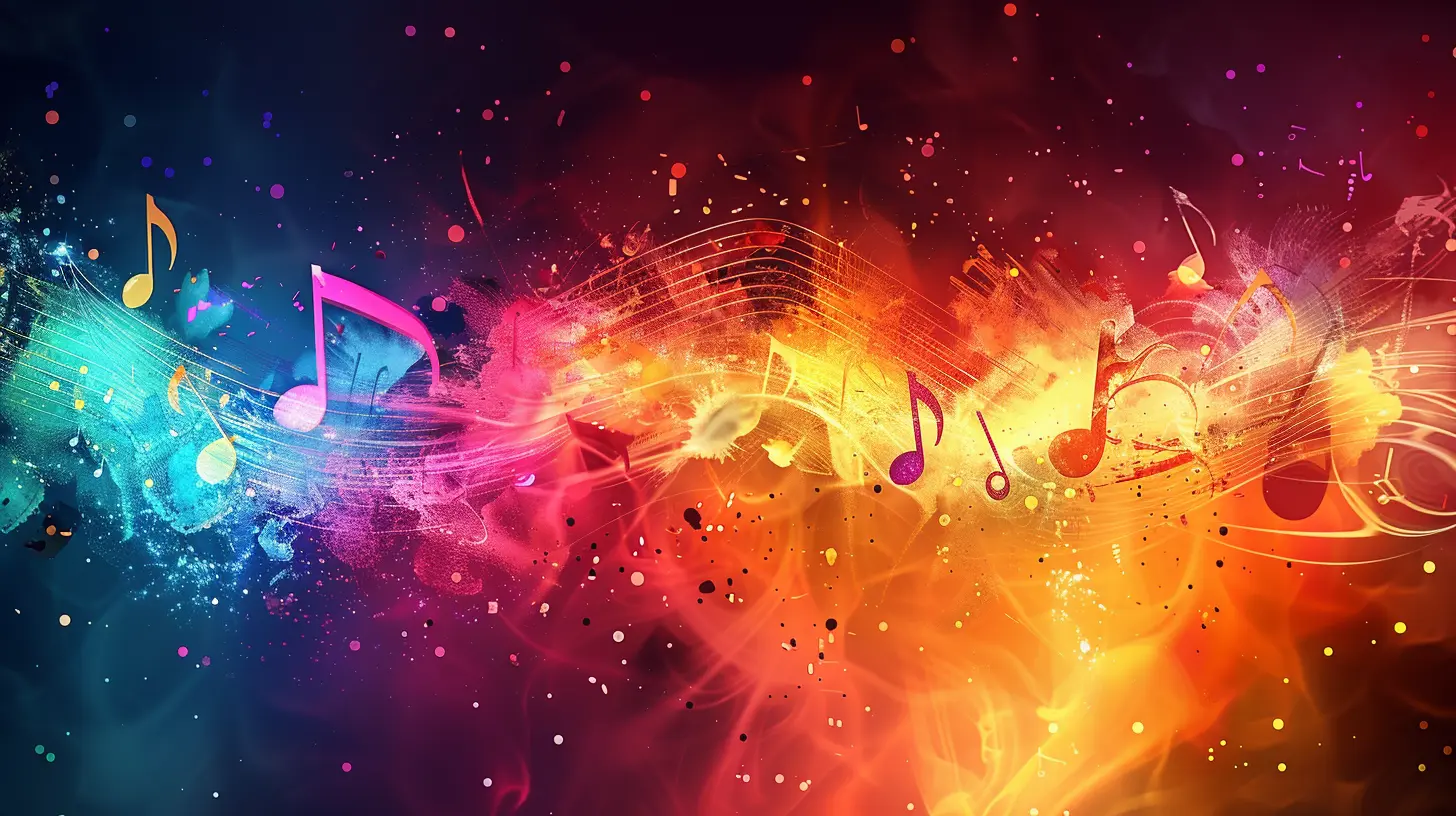Music as a Tool for Coping with Emotional Stress
10 August 2025
Ever had one of those days where everything just feels overwhelming? Like the world is shouting and your mind can't find a quiet moment? We've all been there. Life can be chaotic, unpredictable, and sometimes downright exhausting. But here's a little magic we often overlook — music. Yep, that simple playlist you throw on while driving or doing chores might actually be working overtime behind the scenes. Let’s talk about how music can become your emotional first-aid kit.

Why Emotional Stress Hits So Hard
Before we dive into the healing power of music, let's understand what emotional stress actually does to us. Emotional stress isn’t just about feeling sad or anxious — it creeps into every nook of our lives. It shows up as headaches, restlessness, low energy, irritability, and even physical ailments. Over time, stress chips away at your mental well-being like rust on metal. Not fun, right?In our fast-paced world, stress has become a constant background hum. Whether it’s work pressure, personal relationships, financial worries, or social media burnout, our brains are often stretched to their limits.
So the big question is — how can we effectively manage stress without depending solely on medication or costly therapy sessions?
Enter music.

The Science Behind Music and Emotions
Music isn't just sound — it's a deeply brain-connected experience. When you hear a song you love, your brain lights up like a Christmas tree. Regions like the amygdala (controls emotional responses) and the hippocampus (handles memory) get extra active.Listening to music releases dopamine — the same feel-good chemical that gets triggered when you eat your favorite food or receive a warm hug. No wonder a good song feels like emotional bubble wrap!
Why Does Music Feel So Personal?
Ever hear a song and suddenly you're 17 again, driving with the windows down, feeling invincible? That’s because music stitches itself into our memories. It becomes the background score to our lives — the sad ballad during heartbreaks, the upbeat jam during celebrations. Music makes emotion tangible.
Ways Music Helps Us Cope With Emotional Stress
Alright, let’s break down exactly how music jumps into action when we're emotionally worn out.1. Mood Regulation
Think of music as emotional temperature control. When you're down, playing an uplifting song can gradually pull you from the depths. When you're anxious, a calming instrumental can slow your heart rate and ease your thoughts.People often create playlists based on how they want to feel — calm, energized, empowered, or simply understood. That's personal therapy at its finest.
2. Physical Relaxation
Stress doesn’t just mess with your mind — it messes with your body too. Tense shoulders, clenched jaws, shallow breaths — sound familiar?Slower tempos and soft melodies can physically calm your body. They lower blood pressure, reduce cortisol (our stress hormone), and even relax your muscles. Your body literally exhales with relief.
3. Mindfulness and Presence
Ever tried meditating and found your mind bouncing around like a pinball? Music can help anchor you. Certain genres, especially instrumental, ambient, or nature-infused tracks, work well for mindfulness. They guide your focus and help you stay in the moment — a great way to step out of the stress spiral.4. Emotional Expression
Sometimes, words just aren’t enough. You might not be able to explain why you’re feeling low or anxious — and that’s okay. Music can say what we can't.Whether it's screaming out lyrics in your room, writing your own tune, or simply listening to melodies that “get you,” music gives voice to emotions trapped inside.
5. Fostering Connection
Music creates bonds. Think about concerts, shared playlists, or even humming a song with someone. It helps people feel less alone. When you're emotionally stressed, knowing someone else — even a singer you've never met — feels what you feel can be incredibly comforting.
The Best Types of Music for Emotional Stress
There's no one-size-fits-all when it comes to stress relief through music. Everyone vibes differently. Still, here are a few genres and styles that have shown consistent emotional benefits:🎵 Classical and Instrumental
Think soft piano, violins, or gentle guitar strumming. These pieces often lack lyrics, allowing your mind to wander peacefully without distraction.🎵 Nature Sounds and Ambient Music
Birds chirping, ocean waves, rustling leaves — combined with ambient tones, these can mimic a natural environment and offer mental escape.🎵 Lo-fi Beats
A chill blend of mellow hip-hop and jazz — lo-fi is the background soundtrack for many stressed-out college students and creatives for a reason. It's subtle, rhythmic, and soothing.🎵 Upbeat and Happy Tunes
Songs with catchy rhythms and positive lyrics can lift your spirits. Perfect for workouts, cleaning sprees, or dancing in your kitchen. It’s hard to feel low when you’re jamming out.🎵 Sad Music (Yes, Really!)
Strangely enough, sad music can help too. It validates your feelings, offers emotional release, and can make you feel understood. Just don’t wallow in it too long — balance is key.Creating a "Stress Relief" Playlist
Here’s a fun, proactive tip: curate your own stress-busting music playlist. Think of it as your personal mood doctor.- Include songs that make you smile.
- Add tracks that calm you down.
- Mix in a few emotionally deep ones that help you cry it out if you need to.
- Change it up often — your emotional needs change too.
And remember: high quality headphones = immersive experience. Give your brain the full concert.
Using Music Alongside Other Self-Care Methods
While music is powerful, it’s even stronger when paired with other self-care practices. You might:- Listen to calming music while journaling.
- Pair upbeat songs with a light workout.
- Use instrumental tunes during deep breathing or meditation.
- Sing out your feelings when taking a long shower (free therapy!).
The point is — you don’t have to go at emotional stress with one tool. Music can be the guitar string that ties everything together.
Can Playing Music Help Too?
Absolutely! Playing an instrument, even as a hobbyist, is an excellent form of self-expression. It engages both your mind and body, offers a goal to focus on, and can be incredibly meditative.You don’t need to be a Mozart. Plucking a ukulele, trying a few keys on a piano, or drumming on your desk counts too.
Bonus: singing. Singing activates deep breathing, improves posture, and lets out pent-up feelings. Whether you're pitch-perfect or totally tone-deaf — sing anyway!
Music Therapy: When You Need a Little Extra Help
If you find that music really helps you process emotions, you might want to explore music therapy. This is a legit, science-backed field where certified therapists use music intervention to help people heal mentally, emotionally, and even physically.Music therapy has shown remarkable results for anxiety, depression, trauma recovery, and even PTSD. It’s especially helpful if you’re struggling with expressing your feelings the “traditional” therapy way.
Quick Tips for Using Music to Manage Stress Today
Let’s keep things practical. Here are some easy-to-steal tips:- Start your mornings with a calming acoustic playlist to ease into the day.
- Use instrumental tracks while working to avoid distractions.
- Wind down your nights with slow, soothing music — maybe alongside a warm bath.
- When overwhelmed, put on a nostalgic song and let the memories comfort you.
- Create different playlists for different moods — happy, sad, angry, hopeful.
Final Thoughts
Music is more than background noise. It's a friend, a therapist, a mood-lifter — and sometimes, a lifesaver. In the throes of emotional stress, when words fail or your motivation tanks, the right song can pull you back from the edge.So next time your feelings feel like a tangled mess, try this: close your eyes, press play, and let music do the untangling. Your soul might just thank you with a little more peace.
all images in this post were generated using AI tools
Category:
Coping MechanismsAuthor:

Matilda Whitley
Discussion
rate this article
1 comments
Carson Burton
This article beautifully highlights the therapeutic power of music. It's fascinating how melodies can significantly ease emotional stress and provide comfort in challenging times. Thank you!
August 25, 2025 at 2:37 AM

Matilda Whitley
Thank you for your kind words! I'm glad the article resonated with you and highlighted music's healing potential.


